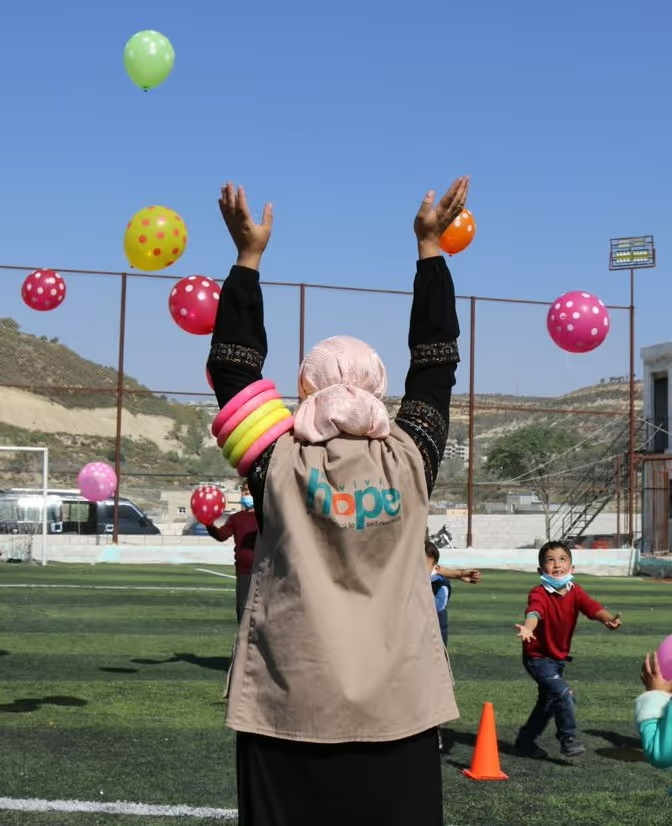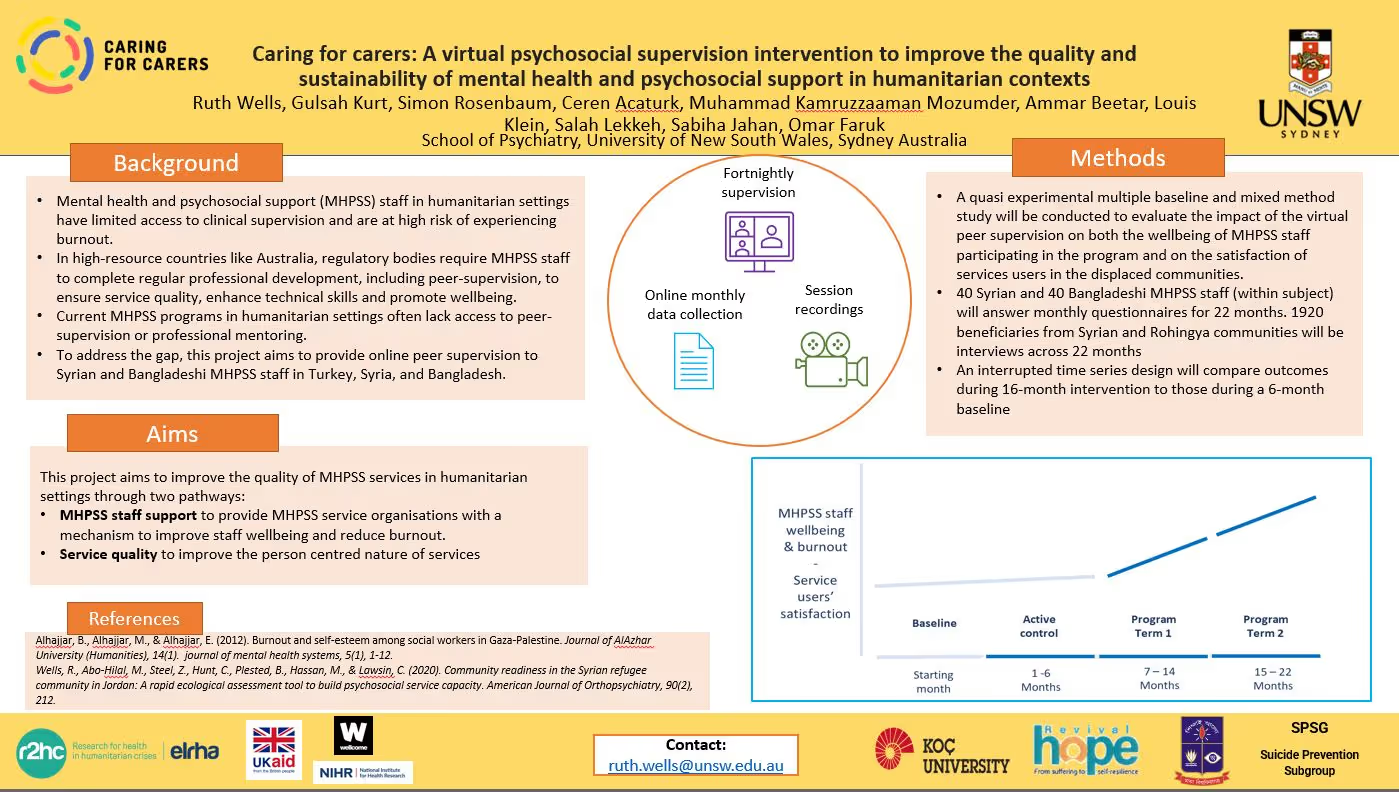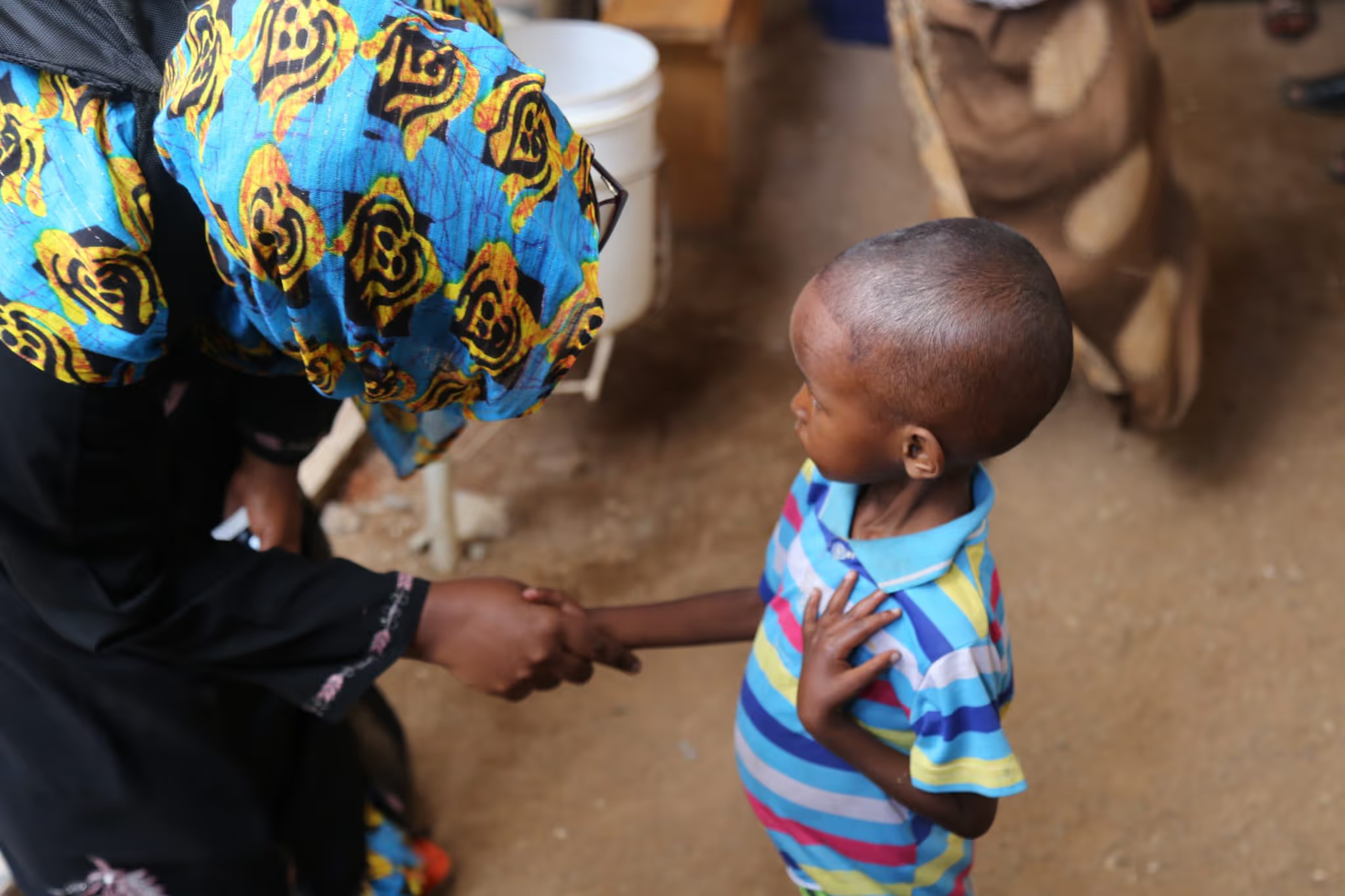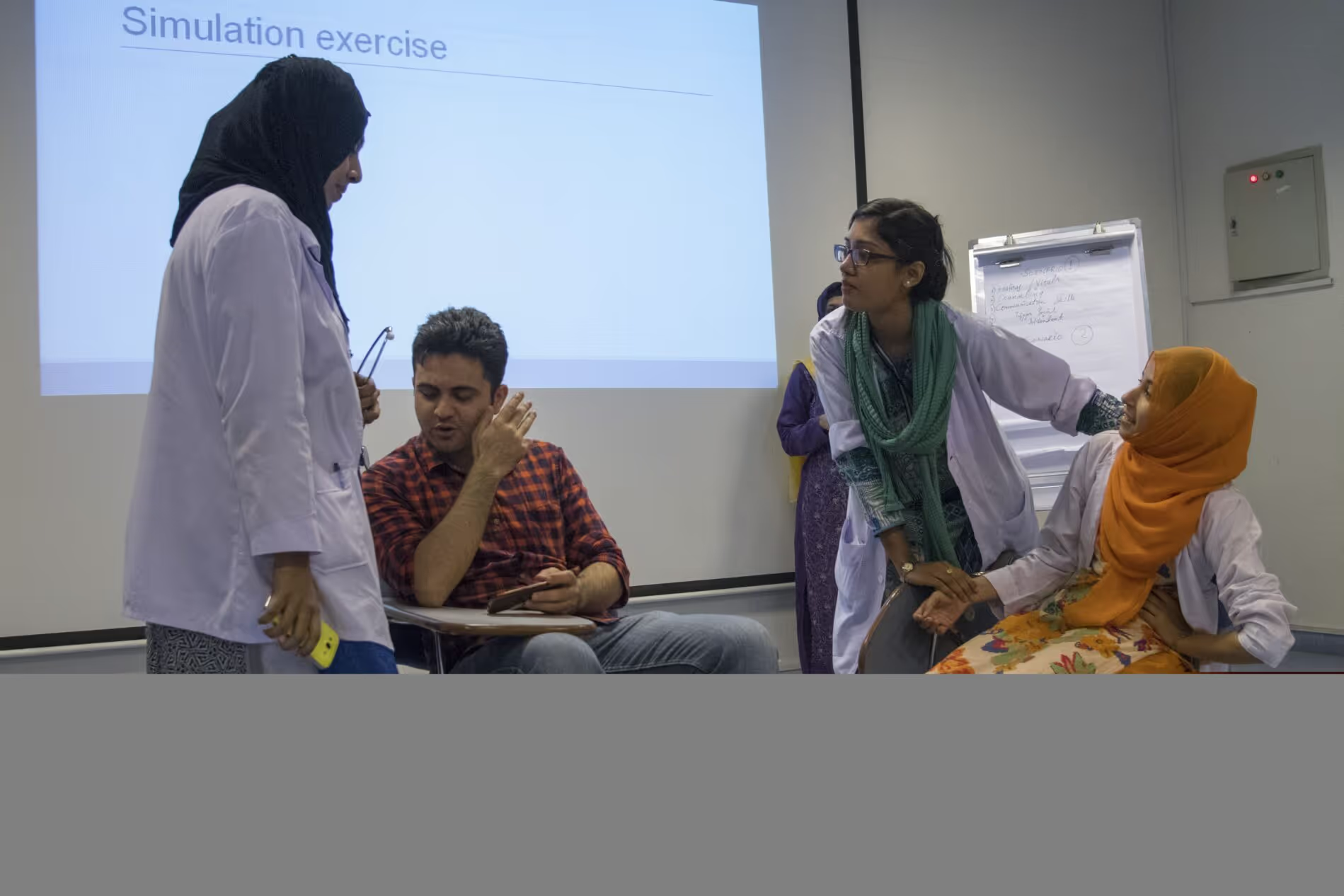Caring for carers: A psychosocial supervision intervention for mental health practitioners

Project overview
Determining the impact of a psychosocial supervision intervention for mental health professionals to improve the quality and sustainability of mental health and psychosocial services in humanitarian contexts.
Countries
Bangladesh
Syria
Turkey
Organisations
University of New South Wales
Partners
Hope Revival Organisation, KoÒ« University, Dhaka University, MHPSS working group Cox’s Bazaar Suicide Prevention Sub-group
Area of funding
Humanitarian Research
Grant amount
£719,712
Start date
01
November
2021
End date
01
January
2025
Project length (in months)
38
Funding calls
Topics
No items found.
Status
Live
Project solution
This project offers [specific solution or intervention] to tackle [challenge]. By implementing [strategies, tools, or innovations], the project aims to achieve [desired outcomes]. The approach is designed to [specific actions or methods] to bring about meaningful change in [community, region, or issue area].
Expected outcomes
This project aims to achieve [specific outcomes], such as [measurable results, improvements, or changes]. The expected impact includes [benefits to the target community, advancements in research or innovation, or long-term effects]. By the end of the project, we anticipate [specific changes or milestones] that will contribute to [broader goals or objectives].
Principal Investigators: Ruth Wells and Simon Rosenbaum, University of New South Wales
Purpose
This mixed-methods research study will support the mental health and wellbeing of mental health and psychosocial support (MHPSS) practitioners working with displaced communities.
Specifically, the study aims to determine the impact of an online video conferencing,peer-supervision programmeon:
- Staff support: the wellbeing and burnout levels of local MHPSS practitioners working with Syrian and Rohingya displaced communities in Syria, Turkey and Bangladesh.
- Service quality: practitioner technicalskills to improve patients perceived service satisfaction, acceptability and appropriateness for displaced Syrian and Rohingya accessing MHPSS services.
- What aspects of the supervision programme are associated with changes in staff support and service quality?
The quantitative measurement of both staff and patient outcomes will inform development of supervision programmes, while qualitative analysis of focus group and video data will identify barriers and enablers.
Ongoing stakeholder engagement through integrated knowledge translation specialists in each setting will support organisational engagement with supervision programmes.
Expected Outcomes
The following outcomes have been identified as the pre-conditions for achieving the desired impact - to strengthen ethical MHPSS service provision in humanitarian settings.
- Staff Outcomes: staff well-being, service provider satisfaction, happy and healthy workforce, lower turnover, increased competency of service providers, and enhanced sense of safety.
- Outcomes for displaced Syrian and Rohingya: patient satisfaction (reduced mental health symptoms, improved functionality etc.)
- MHPSS Infrastructural Outcomes: the provision of necessary means and infrastructure (staff care policies, organisational support etc.), availability of supervision framework policy, standardised protocols, donors and funding agencies and necessary infrastructure and means.
The mixed-methods approach will provide quantitative evidence of the effectiveness, while rich qualitative data will enable us to identify how factors such as the displaced population (Syrian / Rohingya), setting (camp/urban), displaced or host community practitioners, and whether language and culture is shared by pracitioners and patients, impact on intervention implementation. This will support the scale-up of the intervention to diverse settings and identify potential facilitators and barriers to implementation.
Keep up to date with the study's progress via YouTube and Twitter!
No items found.
Project delivery & updates
Stay up to date with the latest developments from this project. Here, you will find details on what has been delivered, resources created, and regular updates as the project progresses. Access key documents, reports, and other materials to see how the project is making an impact.
No resources/updates have been published yet for this project. Sign up for our newsletter to stay informed about upcoming publications and updates!
Join our Newsletter
Resources
No items found.
Latest updates
No items found.









